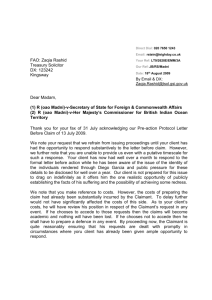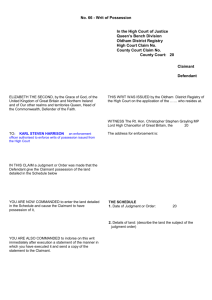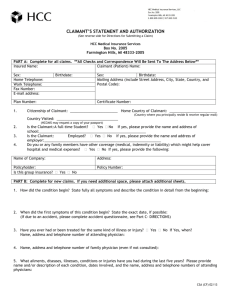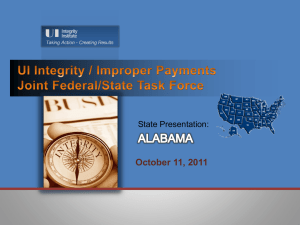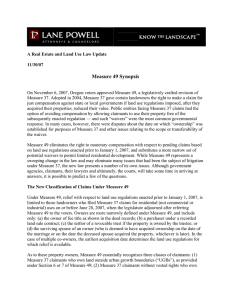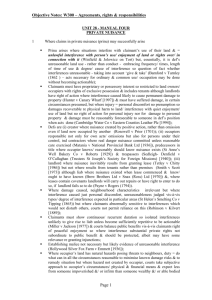Transcript of this slide
advertisement
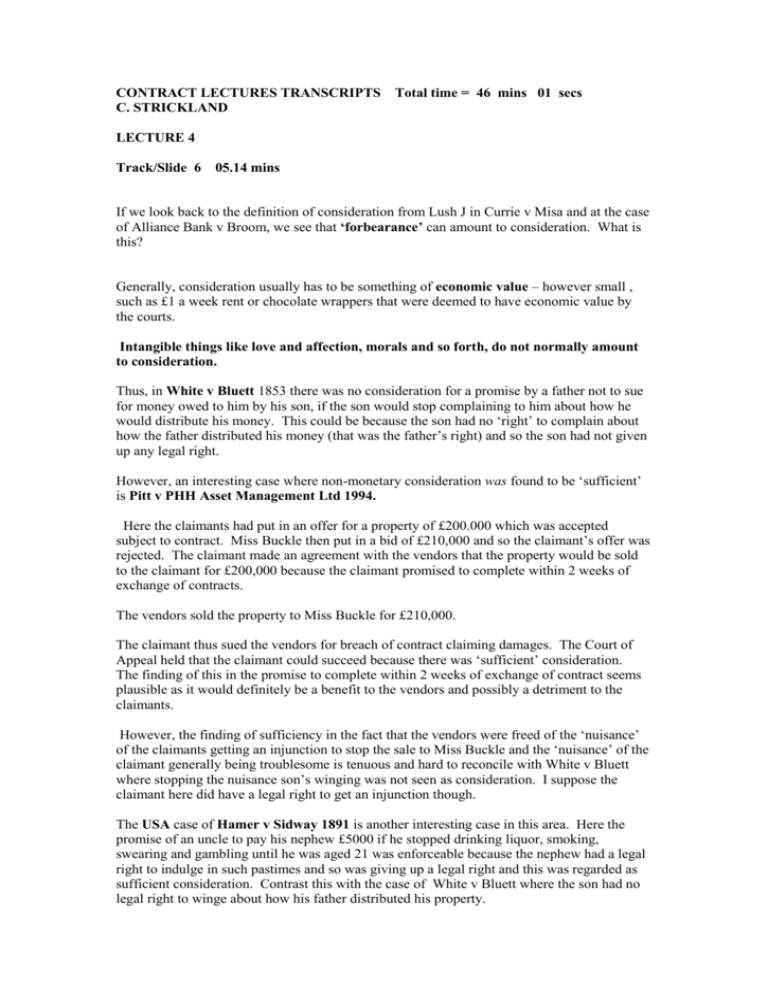
CONTRACT LECTURES TRANSCRIPTS Total time = 46 mins 01 secs C. STRICKLAND LECTURE 4 Track/Slide 6 05.14 mins If we look back to the definition of consideration from Lush J in Currie v Misa and at the case of Alliance Bank v Broom, we see that ‘forbearance’ can amount to consideration. What is this? Generally, consideration usually has to be something of economic value – however small , such as £1 a week rent or chocolate wrappers that were deemed to have economic value by the courts. Intangible things like love and affection, morals and so forth, do not normally amount to consideration. Thus, in White v Bluett 1853 there was no consideration for a promise by a father not to sue for money owed to him by his son, if the son would stop complaining to him about how he would distribute his money. This could be because the son had no ‘right’ to complain about how the father distributed his money (that was the father’s right) and so the son had not given up any legal right. However, an interesting case where non-monetary consideration was found to be ‘sufficient’ is Pitt v PHH Asset Management Ltd 1994. Here the claimants had put in an offer for a property of £200.000 which was accepted subject to contract. Miss Buckle then put in a bid of £210,000 and so the claimant’s offer was rejected. The claimant made an agreement with the vendors that the property would be sold to the claimant for £200,000 because the claimant promised to complete within 2 weeks of exchange of contracts. The vendors sold the property to Miss Buckle for £210,000. The claimant thus sued the vendors for breach of contract claiming damages. The Court of Appeal held that the claimant could succeed because there was ‘sufficient’ consideration. The finding of this in the promise to complete within 2 weeks of exchange of contract seems plausible as it would definitely be a benefit to the vendors and possibly a detriment to the claimants. However, the finding of sufficiency in the fact that the vendors were freed of the ‘nuisance’ of the claimants getting an injunction to stop the sale to Miss Buckle and the ‘nuisance’ of the claimant generally being troublesome is tenuous and hard to reconcile with White v Bluett where stopping the nuisance son’s winging was not seen as consideration. I suppose the claimant here did have a legal right to get an injunction though. The USA case of Hamer v Sidway 1891 is another interesting case in this area. Here the promise of an uncle to pay his nephew £5000 if he stopped drinking liquor, smoking, swearing and gambling until he was aged 21 was enforceable because the nephew had a legal right to indulge in such pastimes and so was giving up a legal right and this was regarded as sufficient consideration. Contrast this with the case of White v Bluett where the son had no legal right to winge about how his father distributed his property. In order for forbearance to succeed as consideration, there must be some existing right or liability owed that can be forsaken for a time, even a short time.




